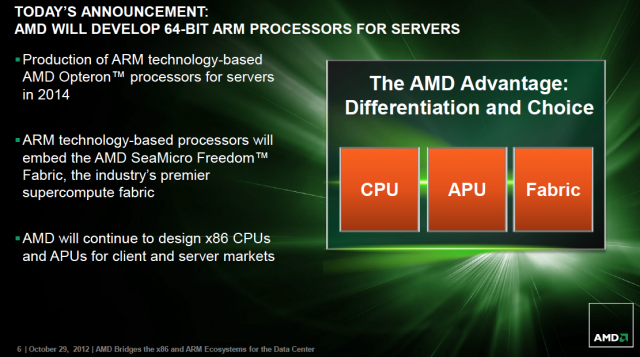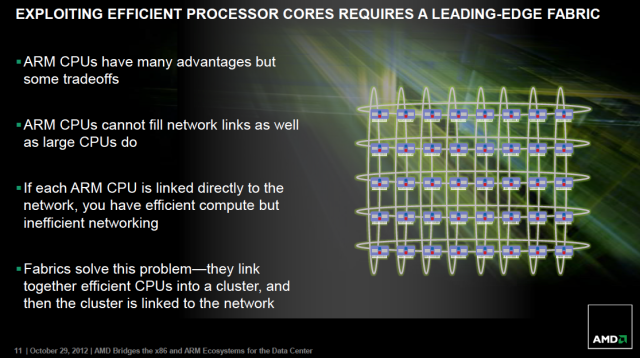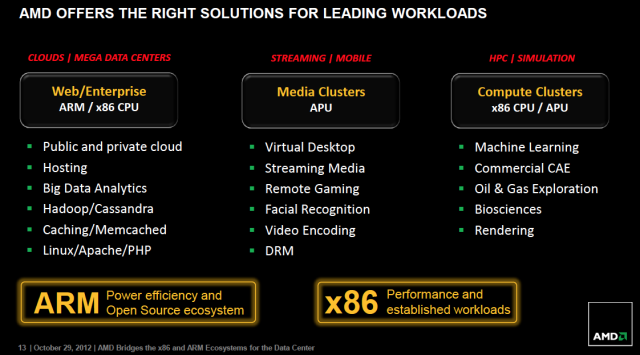
Amidst all the other news today, AMD also slipped in a small but potentially momentous announcement. Beginning in 2014, AMD will begin shipping Opteron server processors based on the low-power ARM architecture, in addition to the x86-based Opterons that it has been shipping for years.
Calling it a "historic day" for the company, AMD President and CEO Rory Read hopes that the new chips will "disrupt the status quo" and "drive the industry to where it needs to go to inspire competition and to enable our customers to do more."
AMD's new ARM-based Opterons will be 64-bit chips, which suggests that the company is using something other than ARM's Cortex A15 architecture—while Cortex A15 supports hardware virtualization and other server-ready features, it uses the ARMv7s instruction set, while the ARMv8 ISA is required for 64-bit support. It's also possible AMD is designing its own custom-tailored ARM chip, as has also been done by licensees like Qualcomm and Apple, though AnandTech notes that the announcement today refers specifically to an architecture license, making a custom-designed core unlikely.

The thing AMD is counting on to make its own ARM processors stand out is SeaMicro's Freedom Fabric, a technology acquired when AMD bought SeaMicro earlier this year. The technology links several low-power CPUs together into a cluster before connecting the cluster to the network, making it easier to keep the CPU cores fed with data.
AMD sees its ARM processors being particularly useful in Web servers and in high-volume enterprise data centers where power usage is a major concern. AMD sees its x86 CPUs as being more valuable in compute clusters where lots of CPU horsepower is still required. Its GPU-equipped APUs will be better for virtualized desktops, remote gaming, and video encoding—applications where some of the processing can be offloaded onto the GPU.
"There is no one-size-fits-all," said AMD Senior Vice President and Global Business Units General Manager Lisa Su.

The announcement of ARM-based server processors could also herald the future introduction of ARM-based tablet and laptop CPUs—NVIDIA, AMD's chief competitor in the dedicated graphics space, has been doing this with its Tegra chips for years. But with its first ARM chips slated to arrive no earlier than 2014, AMD would definitely be late to that party. AMD's push to use ARM in servers rather than consumer technologies like tablets and phones may reflect a desire to back off of a market where it has already been locked out by fierce competition from Intel and other ARM licensees. (You can see that in the lackluster adoption rate of its Desna and Hondo tablet processors.)
This is not the first time AMD has partnered with ARM—AMD has also announced plans to incorporate a Cortex A5 core into its CPUs as a security coprocessor. Whether this turn to ARM for server processors will salvage AMD's reputation among analysts remains to be seen, but the company needs to do something to stay relevant in an increasingly competitive market.
Listing image by AMD
reader comments
60